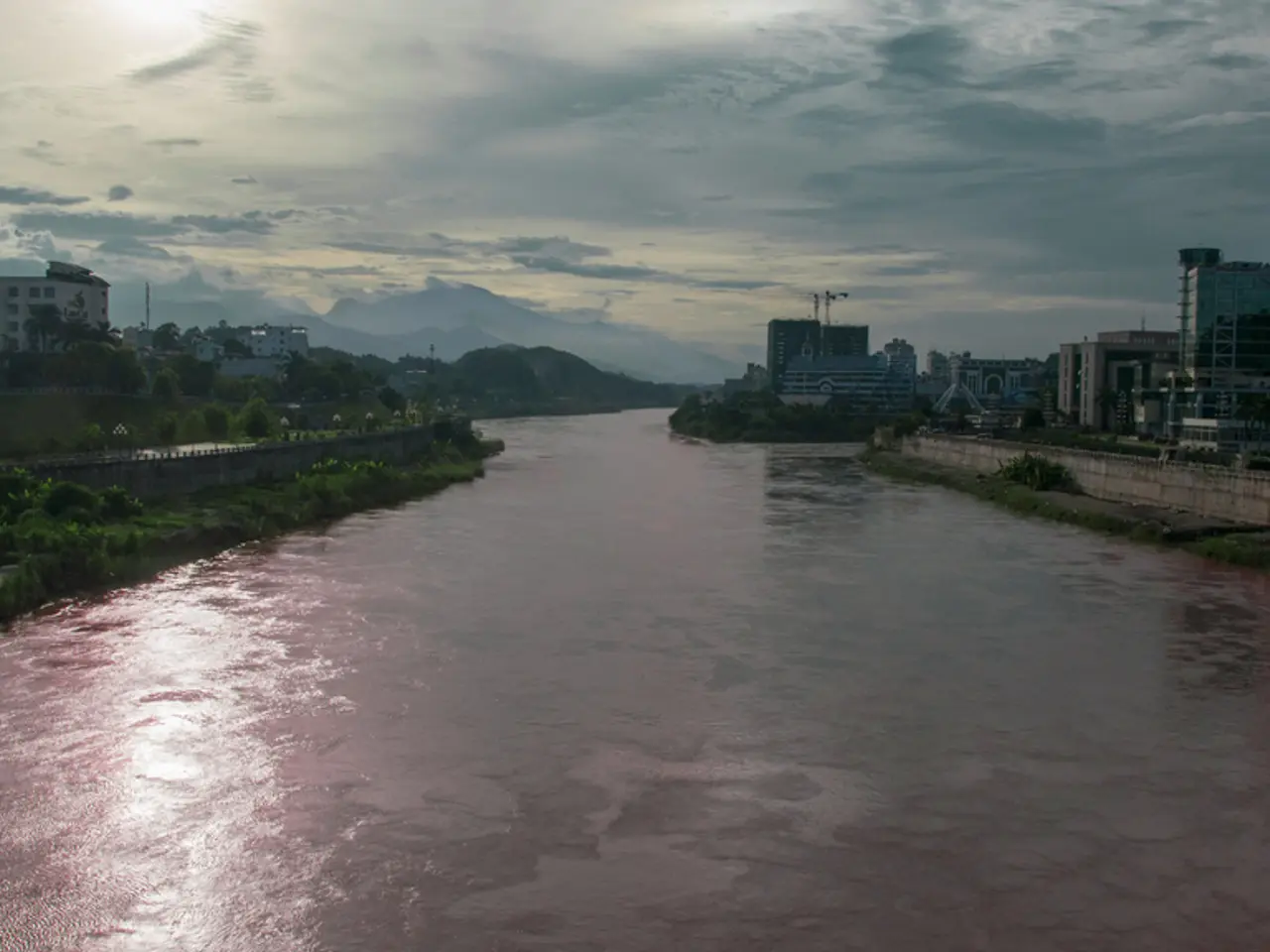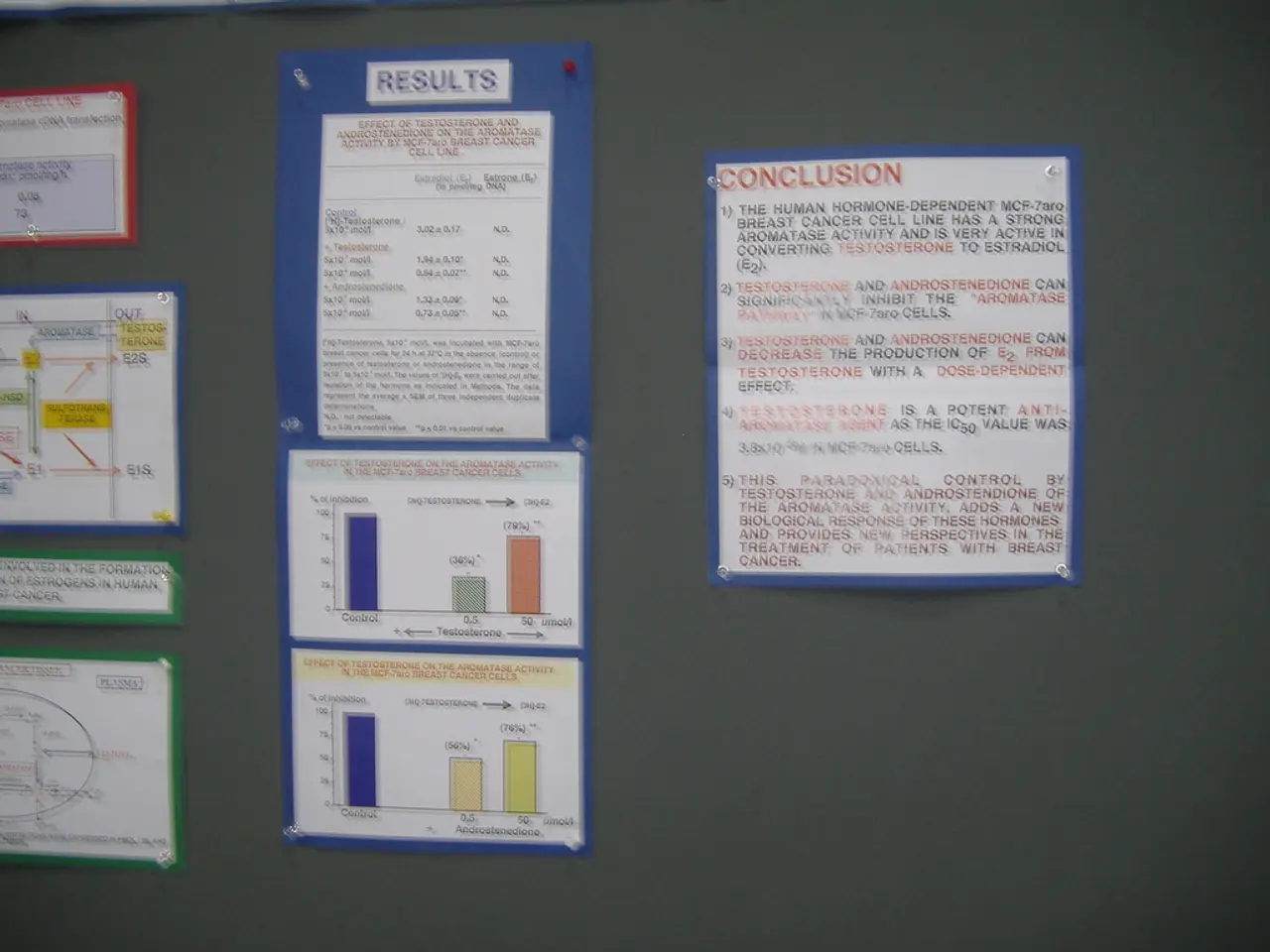Completed Ethiopian Mega-Dam stirring Nile controversy, as per Ethiopian reports. - Nile megadam concluded, as declared by Ethiopian authorities
The Grand Ethiopian Renaissance Dam (GERD) is nearing completion, with the project reaching a 98.9% completion rate as of early July 2025. The dam, situated on the Blue Nile, is a significant national project for Ethiopia, financed primarily by Ethiopian citizens through bond purchases and constructed without external aid [1][2]. The dam, which is 145 meters high and 1.8 kilometers long, is designed to generate up to 5,150 megawatts of electricity, a capacity that will power Ethiopia’s development and enable electricity exports to neighboring countries [3].
However, the dam's completion has sparked concerns among Egypt and Sudan due to its potential impact on their water supply. Egypt, which relies on the Nile for over 90% of its water needs, views the GERD as a threat to its water security, as the dam's storage capacity is 74 billion cubic meters of water [1]. Egypt's share of the Nile's water is fixed at about 55.5 billion cubic meters annually, a figure that is already insufficient for its growing population and agricultural requirements. The dam's completion is expected to exacerbate Egypt's water scarcity, increase agricultural challenges, and increase reliance on food imports [4].
Sudan, while recognizing the potential benefits of regulated water flow and electricity, also shares concerns about water security. However, the specific current stance of Sudan's position was not detailed in the latest reports.
Negotiations involving Ethiopia, Egypt, and Sudan over the dam and its operation have reached an impasse. Egypt is calling for a legally binding agreement, a demand that Ethiopia currently resists. Ethiopia insists on a deal that respects its sovereignty and developmental rights, rejecting what it sees as undue pressure from Egypt and external actors. Ethiopian officials emphasize the dam as a symbol of national unity and economic progress, arguing it will not negatively affect downstream countries [1][3]. Egypt, however, remains wary and hopes for international pressure, particularly from the US, to ensure the dam’s operation does not jeopardize Egypt’s water security [4].
| Aspect | Status / Impact | |-----------------------|--------------------------------------| | **GERD Completion** | 98.9% complete; inauguration planned for September 2025[1][2] | | **Power Generation** | Planned capacity of ~5,150 MW; expansion aims for up to 16,000 MWh annually[3] | | **Ethiopia’s View** | National sovereignty, development boost, no negative effect on neighbors[1][3] | | **Egypt’s Concern** | Threat to water share, worsening water scarcity, agricultural impact[4] | | **Sudan’s Position** | Mixed but not detailed recently; part of ongoing talks | | **Negotiations** | Stalled; Egypt demands legally binding agreement, Ethiopia resists[4] |
The GERD’s completion marks a pivotal moment in Nile Basin geopolitics, highlighting the need for renewed, balanced diplomacy to address downstream water security and upstream development ambitions. As the dam prepares for its official inauguration in September 2025, the international community will continue to watch closely as the three countries navigate this complex issue.
- The controversy surrounding the Grand Ethiopian Renaissance Dam (GERD) has raised concerns within the realm of environmental-science, as the dam's impact on the environment and climate-change remains a topic of discussion.
- In the industry sector, the completion of the GERD signifies a major project for Ethiopia, presenting an opportunity for improvement in the economy's financial standing through electricity production and potential exports.
- The science community, particularly scholars focusing on climate-change and environmental-science, may scrutinize the data on water usage and energy distribution from the GERD as the dam becomes operational, seeking insights into its long-term effects on the region and possible repercussions for future mega-dam projects in countries such as Nepal or Amman.




